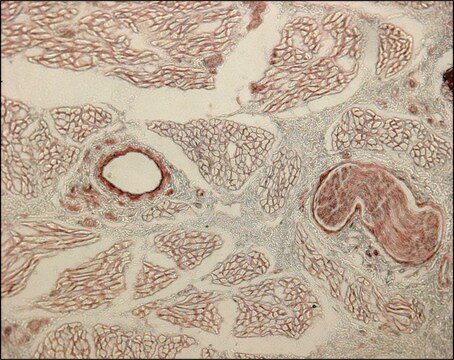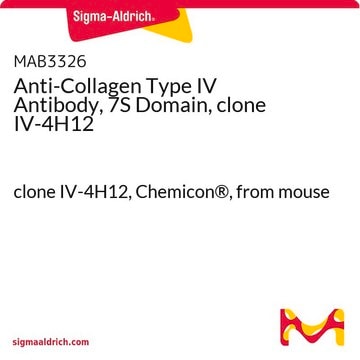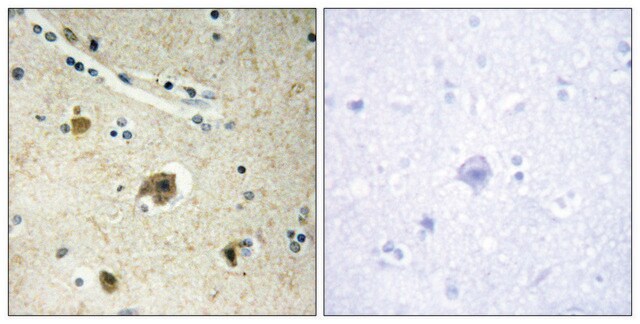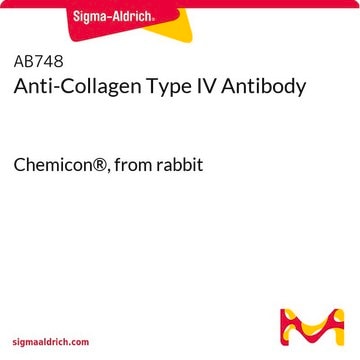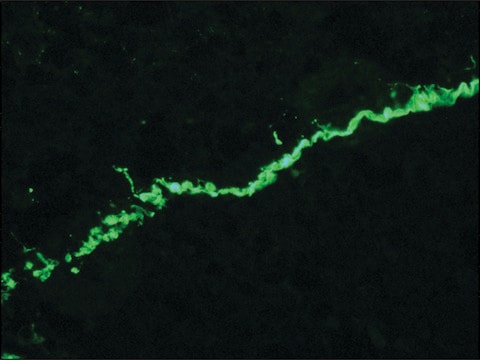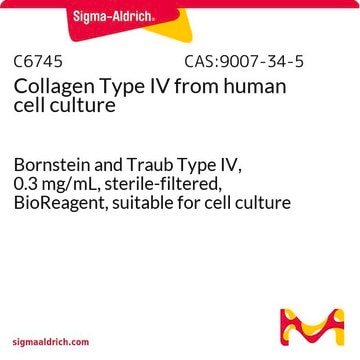SAB4200709
Anti-Collagen Type IV antibody, Mouse monoclonal
clone col-94, purified from hybridoma cell culture
Synonyme(s) :
Anti-col4a1/col4a2
Sélectionner une taille de conditionnement
Sélectionner une taille de conditionnement
About This Item
Produits recommandés
Forme d'anticorps
purified from hybridoma cell culture
Niveau de qualité
Type de produit anticorps
primary antibodies
Clone
col-94, monoclonal
Forme
buffered aqueous solution
Espèces réactives
monkey, human
Concentration
~1 mg/mL
Technique(s)
dot blot: suitable
electron microscopy: suitable
immunohistochemistry: 4-8 μg/mL using formalin-fixed, paraffin-embedded human tongue sections
Isotype
IgG1
Numéro d'accès UniProt
Conditions d'expédition
dry ice
Température de stockage
−20°C
Modification post-traductionnelle de la cible
unmodified
Informations sur le gène
human ... COL4A1(1282)
Catégories apparentées
Description générale
Immunogène
Application
Actions biochimiques/physiologiques
Forme physique
Clause de non-responsabilité
Vous ne trouvez pas le bon produit ?
Essayez notre Outil de sélection de produits.
Code de la classe de stockage
10 - Combustible liquids
Point d'éclair (°F)
Not applicable
Point d'éclair (°C)
Not applicable
Faites votre choix parmi les versions les plus récentes :
Certificats d'analyse (COA)
Vous ne trouvez pas la bonne version ?
Si vous avez besoin d'une version particulière, vous pouvez rechercher un certificat spécifique par le numéro de lot.
Déjà en possession de ce produit ?
Retrouvez la documentation relative aux produits que vous avez récemment achetés dans la Bibliothèque de documents.
Les clients ont également consulté
Active Filters
Notre équipe de scientifiques dispose d'une expérience dans tous les secteurs de la recherche, notamment en sciences de la vie, science des matériaux, synthèse chimique, chromatographie, analyse et dans de nombreux autres domaines..
Contacter notre Service technique